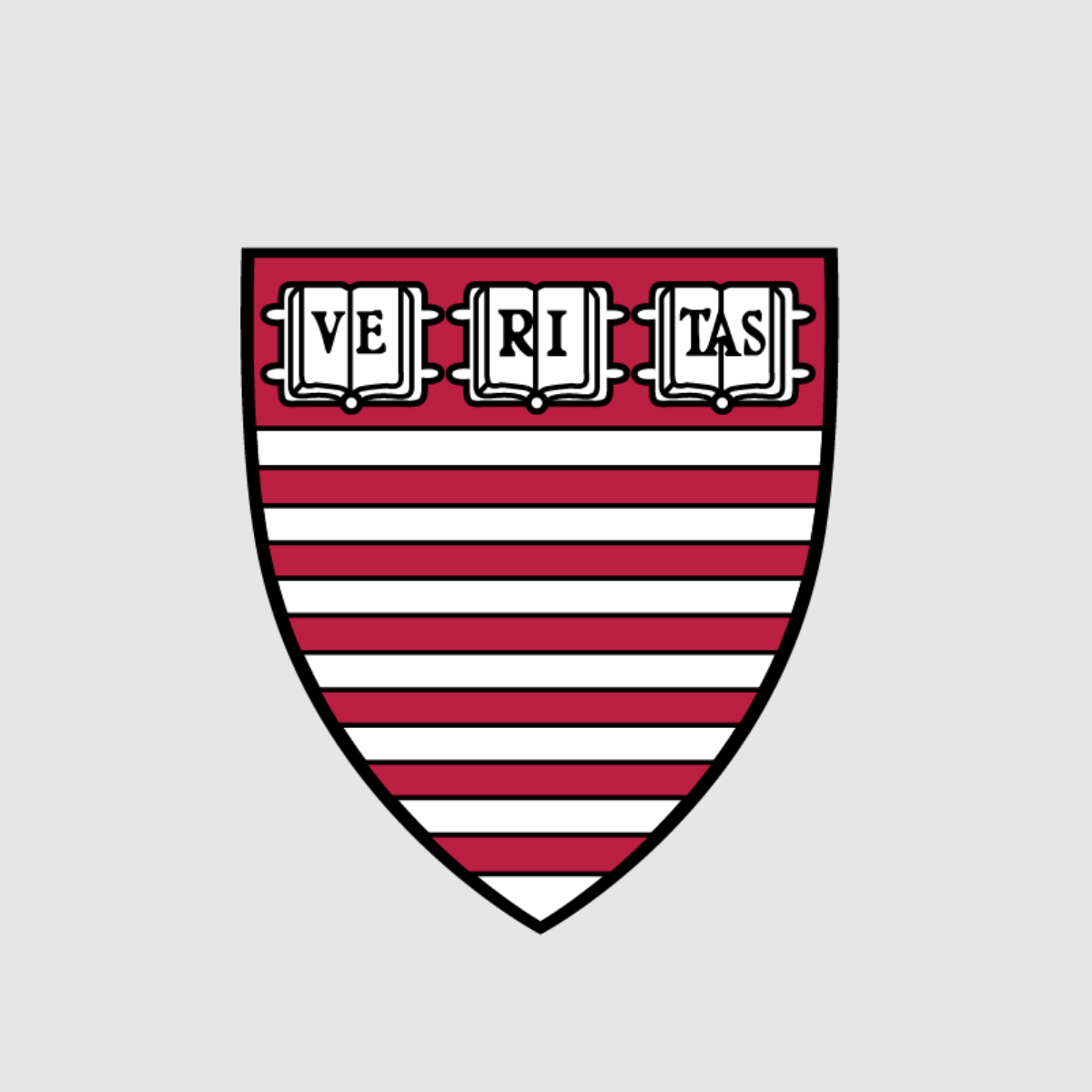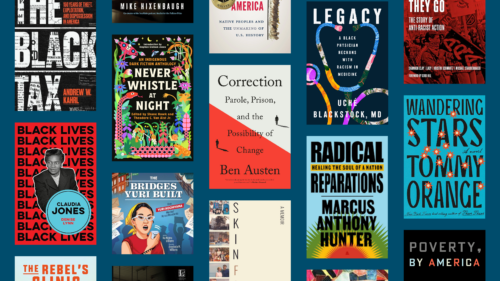Uncovered histories, groundbreaking research, and imaginative fictions; the past year was filled with books that help us understand race and racism across healthcare, education, sports, and beyond.
This list, curated by the Institutional Antiracism and Accountability (IARA) Project, highlights 15 new titles published at a critical moment.
Four years after the national reckoning with systemic racism following the murder of George Floyd, the U.S. is seeing pushback against antiracist change. In every state but one, lawmakers have introduced at least one anti-Critical Race Theory measure; 85 anti-DEI bills targeting universities have been proposed; and book bans continue to rise in public libraries and school districts.
This book list shares truth, and truth carries power. IARA Director Professor Khalil Gibran Muhammad and IARA Research Projects Director Erica Jacqueline Licht, MPA, M.Sc. wrote recently in Learning for Justice: “Reckoning with truths about the United States is hard, but it is the only way to build a true multiracial democracy with leaders equipped to meet the demands of designing new societal structures and systems that promote fairness, equity and justice.”
Keep scrolling to explore our pick of recently published books, including historical deep-dives, lyrical memoirs, a children’s picture book, and a dark fiction anthology.
Institutionalized oppression, inside and out
Correction: Parole, Prison, and the Possibility of Change by Ben Austen 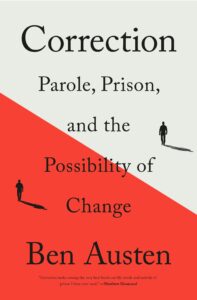
The United States alone locks up a quarter of the world’s incarcerated population. In his latest book, author, journalist, and former co-host of the podcast Some of My Best Friends Are Ben Austen asks, How might we find a way out of this era of mass imprisonment? Through portraits of two men navigating the carceral system in the U.S., Austen shares an inside perspective on the process of parole — challenging us to consider why and who is punished.
Legacy by Dr. Uché Blackstock 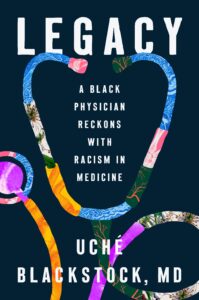
Physician, health equity advocate, and Harvard alumnus Dr. Blackstock delivers a searing portrait of the U.S. healthcare system through this intergenerational memoir. Written as the pandemic converged with a national reckoning on systemic racism, Legacy serves as a call-to-action for tearing down systemic barriers to health equity
Black Tax by Andrew Kahrl 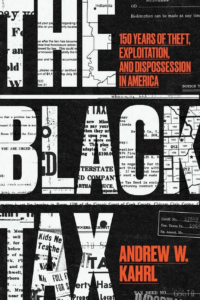
Hidden in the shadows of America’s tax regimes are a series of racist practices. In The Black Tax, Professor Kahrl reveals this shocking history and its consequences on racial equity today. Learn about cases of agricultural land theft, in the panel Gaining Ground: The Fight for Black Land moderated by the author at the Harvard Kennedy School in November 2023.
Poverty, by America by Matthew Desmond 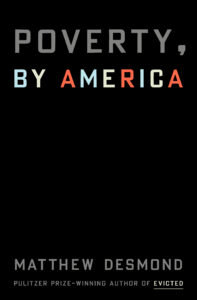
This book responds to a straightforward question: Why does the United States, the richest country, have more poverty than any other advanced democracy? Social scientist and urban ethnographer Matthew Desmond draws on history, research, and original reporting to form an answer. His argument is both compassionate and fierce, articulating how affluent Americans knowingly and unknowingly keep poor people poor.
They Came for the Schools by Mike Hixenbaugh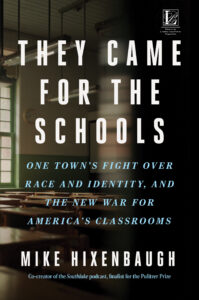
Written by award-winning investigative reporter Mike Hixenbaugh, They Came for the Schools tells the eye-opening story of well-funded conservative backlash against a school board in Southlake, Texas. This book pulls back the curtain on the powerful forces driving the present-day crusade on book bans, curricula, and rights for minority and LGBTQ+ students.
Organizing the movement
The Rebel’s Clinic: The Revolutionary Lives of Frantz Fanon by Adam Shatz 
In The Rebel’s Clinic, Adam Shatz offers a dramatic reconstruction of the life of legendary intellectual activist Frantz Fanon, the pre-eminent critic of colonialism. Fanon’s writings about race, revolution, and the psychology of power continue to shape radical movements across the world and underlie today’s most vital efforts to challenge white supremacy and racial capitalism.
The Bridges Yuri Built: How Yuri Kochiyama Marched Across Movements by Kai Naima Williams & illustrated by Anastasia Magloire Williams 
This children’s picture book introduces one of the 20th century’s most notable freedom fighters, Yuri Kochiyama, to the next generation of readers. Published by Kaepernick Publishing, the colorfully illustrated new release brings to life the hardships and victories of Yuri’s activism, from incarceration in a Japanese-American concentration camp during World War II to organizing for better schools in Harlem.
Claudia Jones: Visions of a Socialist America by Denise Lynn 
Here’s a new biography of activist icon Claudia Jones, who argued that emancipation could not be achieved under capitalist regimes and that it was capitalism that perpetuated oppression. Hers was a message of peace grounded in social justice and liberation through equity–which she believed could only be achieved under socialism. This book offers the story of an activist grounded in the vision that one day we would all be emancipated.
We Go Where They Go: The Story of Anti-Racist Action by Shannon Clay, Lady, Michael Staudenmaier, Kristin Schwartz 
This book explores how the Anti-Racist Action movement countered fascist movements in the U.S. beginning in the 1980’s. Based on extensive interviews with ARA participants, We Go Where They Go tells a fascinating story of grassroots antiracist activism and rabble-rousing.
Taking back the narrative
Black Ball: Kareem Abdul-Jabbar, Spencer Haywood, and the Generation that Saved the Soul of the NBA by Theresa Runstedtler 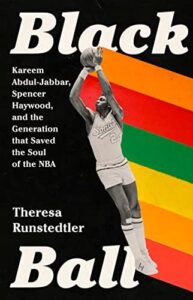
Black Ball presents a vital narrative history of professional basketball and the Black players who shaped it. In it, scholar Theresa Runstedtler returns to basketball’s ‘Dark Ages,’ when the league became a symbol of a post-civil rights nation. While at the time incoming Black players were blamed for ruining the sport, their skills, style, and savvy ended up laying the foundation for its skyrocketing success. Learn more about antiracism and sports in a recent panel Leveling the Playing Field featuring WNBA Player Nneka Ogwumike at the Harvard Kennedy School.
Never Whistle at Night: An Indigenous Dark Fiction Anthology edited by Shane Hawk and Theodore C. Van Alst Jr. 
This collection of spine-chilling tales explores the uncanny, weird, and supernatural in Indigenous storytelling. The 26 original contributions are as clever as they are sinister, reframing pressing issues facing Indigenous communities through wit and imagination. The anthology un-settles readers in more ways than one.
The Rediscovery of America by Ned Blackhawk 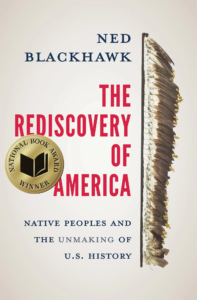
In this impressive history text, Te-Moak Professor Ned Blackhawk covers five centuries on Turtle Island (North America). By synthesizing Native and non-Native histories together, he reveals new truths in the U.S. history, including how European colonization in the 1600’s was not a guaranteed success, Native nations helped shape England’s crisis of empire, and 20th century reservation activists shaped American law and policy.
Skinfolk by Matt Guterl 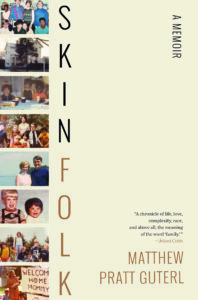
Skinfolk is a poignant memoir of growing up in a mixed-race family in 1970’s New Jersey. Written in stunning prose, the book narrates a family saga in which the American conception of race is pushed to its limits.
Radical Reparations: Healing the Soul of a Nation by Marcus Anthony Hunter 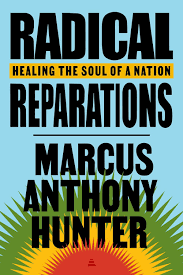
Inventor of the hashtag #BlackLivesMatter, Marcus Anthony Hunter is one of America’s foremost voices on reparations for the descendants of enslaved Black Americans. Published in a time of intense debate over the issue, this book presents a worthwhile account of petitions to redress the lasting and collateral consequences of slavery.
Wandering Stars by Tommy Orange 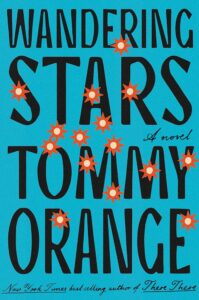
Tommy Orange’s latest novel explores generational trauma surrounding the Sand Creek Massacre in Colorado in 1864. An exceptionally powerful book takes the form of a modern epic, following multiple generations as they continue to imagine a future free from institutional violence.
Coming soon
For anyone who makes it through this stack before the end of summer, here are a handful of titles slated to come out in 2024:

